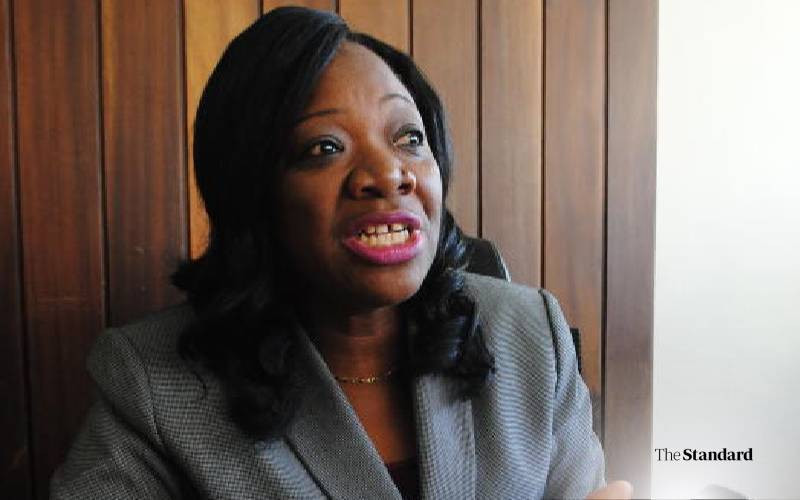A Nairobi court has freed Rose Njeri, a website developer and activist, after finding that the charges leveled against her did not disclose any offence.
Milimani Magistrate Geoffrey Onsarigo discharged Njeri, ruling that the accusations failed to meet the legal threshold to constitute a crime under the Computer Misuse and Cybercrimes Act.
“I hereby refuse to admit the two counts before this court and proceed to discharge Rose Njeri under Section 89(5) of the Criminal Procedure Code,” the magistrate ruled.
The prosecution had alleged that Njeri created a system that enabled the public to send mass emails to the Finance Committee of the National Assembly, in protest of the controversial 2025 Finance Bill.
The Director of Public Prosecutions (DPP), through state counsel Victor Owiti argued that this action disrupted the committee’s email systems, constituting unauthorized interference with a computer system under Section 16 of the Computer Misuse and Cybercrimes Act.
However, Magistrate Onsarigo found the charge wanting in both legal form and substance.
“The charge plainly states that the suspect sent emails to an address created for the purpose of receiving emails. It does not allege whether the system crashed, stopped working, or caused any financial loss or national security threat,” he observed.
The magistrate further cited Article 25(c) of the Constitution, affirming the right to a fair trial as non-derogable, and Article 50, which guarantees an accused person the right to be informed of charges with sufficient detail to prepare a defense.
“An accused must be charged with an offence known in law, stated clearly and unambiguously so they can plead and defend themselves adequately,” Onsarigo ruled.
The court ruling comes after Njeri’s lawyers objected to her pleading to the charges on grounds that they were flawed and defective.
The defense team, which included former Chief Justice David Maraga, Senior Counsel Kalonzo Musyoka, Senator Dan Maanzo, Eric Theuri, Kibe Mungai, Ndegwa Njiru, and Khaminwa, argued that the case was a clear abuse of prosecutorial power.
“The charges lack specificity, are poorly drafted, and fail to establish any real criminal intent,” Maraga stated, calling the case a misuse of cybercrime laws to punish digital activism.
“If her crime is sensitising Kenyans to say yes or no to a Finance Bill, then what crime is that? Are we criminalizing civic engagement?”
Eric Theuri, former LSK President, stated that “Cybercrime laws were meant to address hacking and malicious interference. Rose simply created a tool that allowed people to use a public email address for its intended purpose.”
Stay informed. Subscribe to our newsletter
Njeri was arrested on the night of May 30, 2025, and held in police custody for over 90 hours before being brought to court.
She never took a plea, as her legal team immediately challenged the legitimacy of the charges.
Her arrest sparked public outrage, with civil society groups and digital rights activists rallying behind her outside the courthouse.
“Free Njeri! We want justice!” chanted protesters as police attempted to disperse them.
“This is not just about Rose. It’s about every Kenyan who wants to be heard by their government,” said one activist.
After being freed, Njeri addressed the media outside the court alongside her mother, Evan Naomi, expressing joy with the court decision to discharge her over.
“I am happy with all the support that Kenyans have given me since I was arrested, and l am also happy with the court decision. May justice prevail,” She said

























